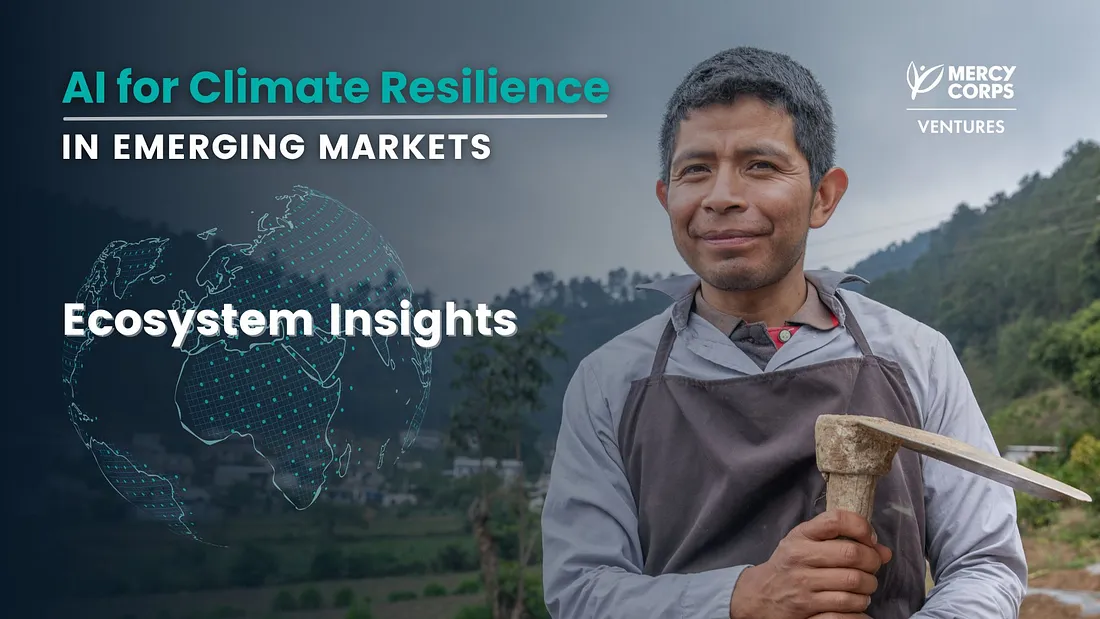Ecosystem Insights from the AI for Climate Resilience call for proposals
In brief
Inspired by the transformative potential of AI, we launched the AI for Climate Resilience initiative to explore how, and to what extent, is AI being applied in emerging markets in June 2024.
We received 318 applications from 55 countries, with the majority coming from Africa (73%), followed by Latin America (13%), and Asia (11%).
Each proposal aligned with one of the three core areas in our Resilient Futures Thesis:
Adaptive Agriculture and Food Systems (47%)
Climate Smart Technologies (38%)
Inclusive Climate Fintech (15%)
The most common themes in the proposals were:
Climate Resilient Land Management (20%): Prioritizing sustainable practices, particularly soil regeneration.
Precision Agriculture (18%): Using AI to enhance ag production, water management, and soil health.
Full Suite Farmer Platforms (15%): Offering farmers a broad range of services to bridge gaps in market access, knowledge and financial resources.
Beyond AI, many solutions included IoT (54%)(such as satellite and sensor technologies) and mobile messaging tools (14%) (e.g., SMS, USSD) to effectively reach smallholder farmers in remote areas. Additionally, blockchain (10%) was proposed for traceability and financial inclusion applications.
In July 2024, we launched the AI for Climate Resilience call for proposals, inviting entrepreneurs to submit their first-of-a-kind (FOAK) ideas for leveraging AI to bolster climate resilience in emerging markets. We were thrilled to receive an overwhelming response — 318 applications from 55 countries across Africa, Latin America, and Asia. These proposals aligned with one of the three core areas of our Resilient Future Thesis: Adaptive Agriculture and Food Systems (47%), Climate Smart Technologies (38%) and Inclusive Climate Fintech (15%). They showcased a variety of solutions designed to support smallholder farmers, foster sustainable land management, and address the pressing challenges farmers face in the world’s most climate-vulnerable regions.
We are excited to share insights from this rich pool of applications. Our analysis reveals notable trends, innovative uses of AI, and diverse perspectives that align with our Resilient Future Thesis. Beyond AI, many solutions included IoT (such as satellite and sensor technologies), and mobile messaging tools (e.g., SMS, USSD) to effectively reach smallholder farmers in remote areas. Additionally, blockchain was proposed for traceability and financial inclusion applications. In line with our commitment to support diverse and underserved founders, we were thrilled to receive a broad set of applications, where 58 nationalities were represented and a notable percentage were women and proximate founders, bringing deep, on-the-ground experience to the challenges we aim to solve.
This summary offers a closer look at the technologies, target users, and impact areas emphasized by applicants. By sharing these insights and the broad range of solutions being developed, we aim to inspire the further collaboration needed to drive forward solutions that strengthen climate resilience for communities most affected by environmental change.

